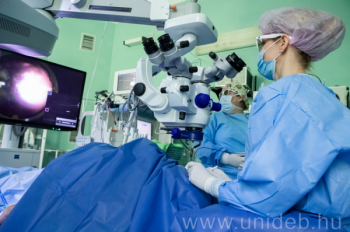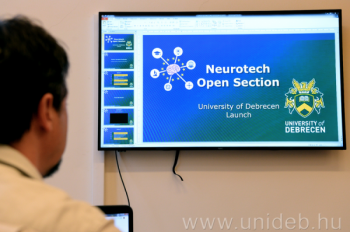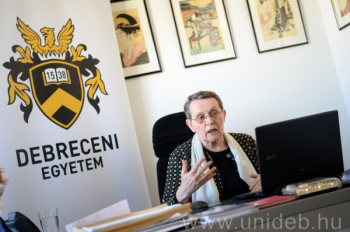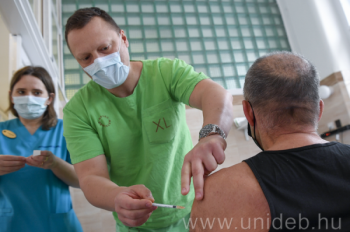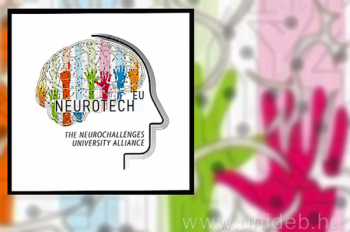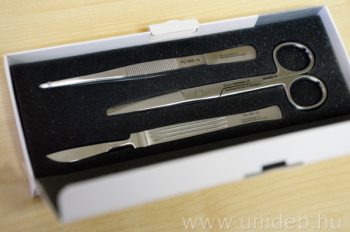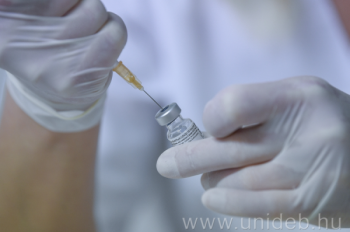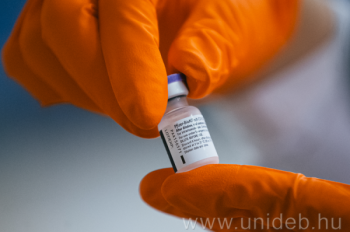Surgeries are safer and take shorter at the Ophthalmology Clinic of the Clinical Centre (KK) of the UD, where one of the best ophthalmic operating microscopes is used equipped with optical coherence tomography (OCT) imaging used during surgery and 3-D option.
Hírek Medicine címkével
EULAR, the European League Against Rheumatism, has elected Zoltán Szekanecz, Professor of the Faculty of Medicine of the UD. His priority is to efficiently pursuit the interests of rheumatologists, healthcare workers and patients in Central and Eastern Europe, including Hungary.
Depression, robotic psychology and the vision of cats were discussed, among other things, at a conference on neuroscientific contexts initiated by the University of Debrecen in the framework of NeurotechEU.
Genetic and environmental risk factors underlying diseases primarily responsible for premature death have been identified by experts in the field of public health at the UD as part of a 5-year project that is now nearing completion.
It is not only patients who need health care in an institutional setting that the Clinical Center of the UD care for in a highly professional manner. The CC professionals carry out outstanding work in every field from screening to sample analysis to administering preventive vaccines.
The NeurotechEU project is looking for partners in their quest to solve problems of neurosciences. Researchers and companies interested in developing new industrial solutions and technologies can contact the project’s personnel by completing a questionnaire.
The University of Debrecen continues to be among the top 450 universities according to the thematic list ranking life sciences and general medicine most recently issued by the prestigious London-based organization QS (Quacquarelli Symonds).
Scalpels, scissors and forceps make up the sets of medical instruments included in a more than HUF 4 million worth of donation offered by MEDICOR Kéziműszer Zrt. [Medicor Hand Instrument Ltd.] to support the programs of the University of Debrecen in medicine.
The administration of the second those of the Pfizer–BioNTech COVID-19 vaccine to healthcare workers has been started at the University of Debrecen. In the following weeks more than 10,000 people will receive revaccination in Debrecen.
On 26 December the first doses of the Pfizer-Biontech COVID-19 vaccine arrived at the University of Debrecen. Vaccination started. In the last days of December, 975 people were vaccinated.
